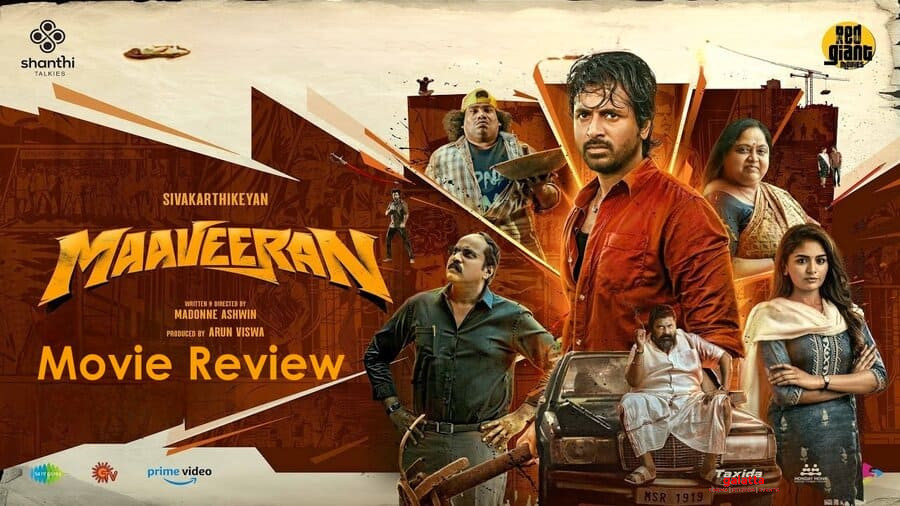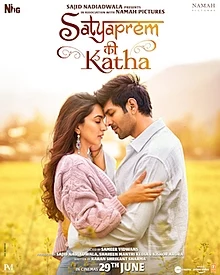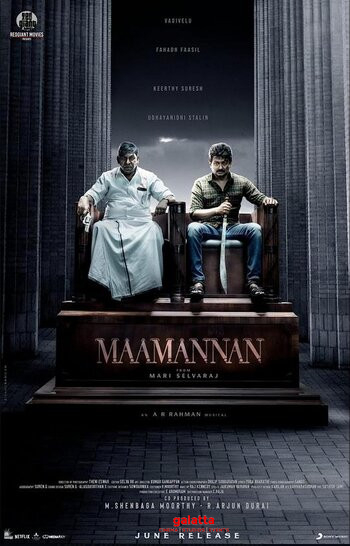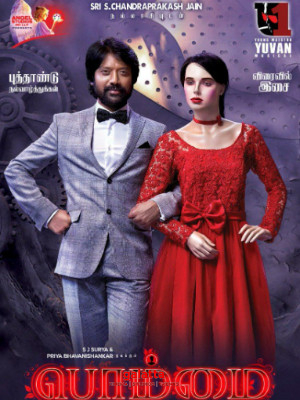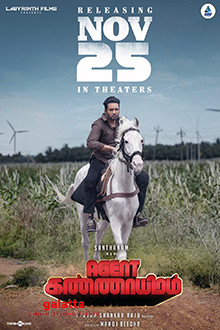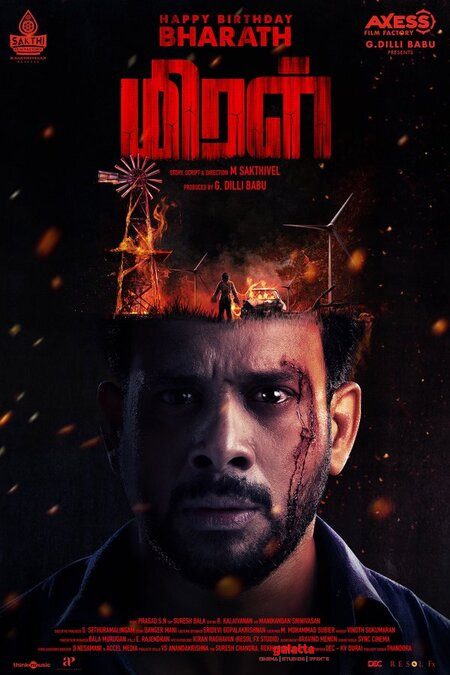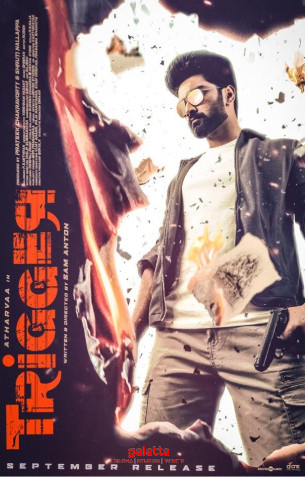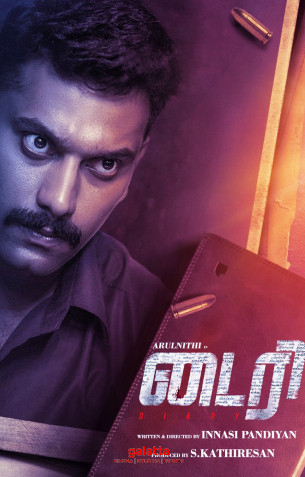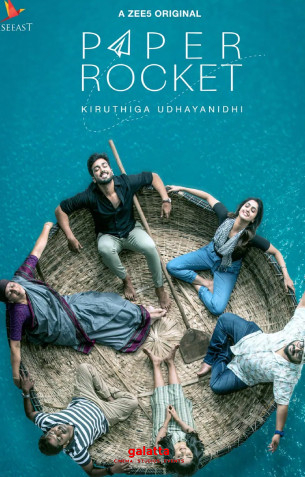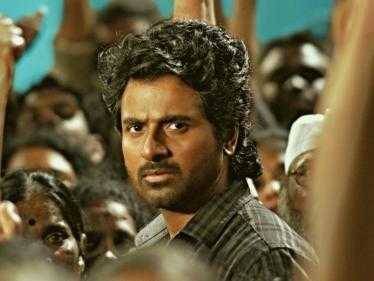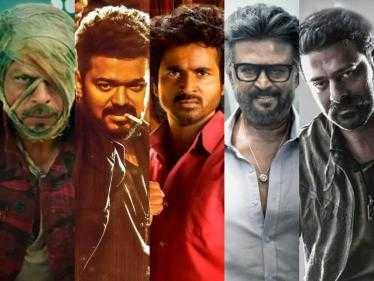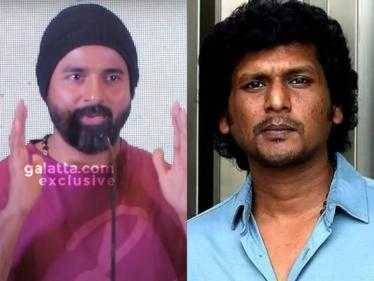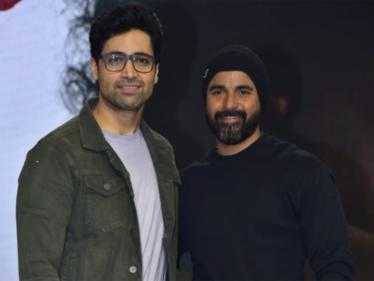Maaveeran Movie Cast & Crew
"A terrific premise. A big heart. But too long and, after a point, too one-note – we seem to be seeing variations on the same themes and jokes." I said this about Madonne Ashwin's first film, Mandela, and I have the same comments to make about this director's second film, Maaveeran, which is a kind-of sequel to Mandela. Here, too, a man is oppressed. In Mandela, the protagonist was literally from an oppressed community. Here, Sathya (played by Sivakarthikeyan), is a cowardly lower-middle-class man who is oppressed by the System and its politicians. And in both films, the way out from this oppression is through the protagonist's very identity. In Mandela, it was a voter ID card. Here, it is through Sathya's identity as a cartoon-panel storywriter, who creates a serialised Kanni Theevu-like comic strip for a Tamil newspaper. The maaveeran – "brave warrior" – of the comic strip is Sathya's id, his Tyler Durden. It's an extension of his identity, representing the rage that's inside him but just won't come outside.
First of all: claps all around for the intentions. A big round of applause to Madonne Ashwin for thinking up something like this as a one-line for a big-hero movie. A big round of applause to Sivakarthikeyan for agreeing to play a coward for most of a movie. A big round of applause for the screenplay's focus, where Aditi Shankar is not allowed to distract the hero's journey with a romantic track. A big round of applause for opening the story with the cartoon version of the hero (i.e., Maaveeran) saving a princess from a collapsing building and an evil magician, and ending the story with the very same images: only, the princess is replaced by Sathya's people, and the villain is now a politician whose initials are MN (as in "Yaman"). This politician is played by Mysskin. A big round of applause for not creating melodrama out of situations like the one where a man breaks open a bathroom latch and sees a woman naked.
And guess who this woman is! The hero's sister. The screenplay is taking a big risk here. What kind of man does not fight back against the man who (at least visually) molested his sister! The audience is likely to ask this question, but thankfully, Sivakarthikeyan didn't. This is not an empty-heroism story. And note how the writing has already established the fact that this man likes to use other people's bathrooms. There are many such instances of clean writing, where things don't happen randomly and to random people. During a song, Sathya puts up a cloth cradle and when we see the baby injured later, we recall the earlier bit. When the heroine gives a mini-lecture to the hero in a late scene, about channelling his inner anger, it is not womansplaining. She has already been shown as his champion, encouraging him to sign his name on the comic-strip story and appreciating his attempt to make the story more about the problems faced by the common man.
The best writing conceit is the fact that the story revolves around bad-quality housing. Sathya and his neighbours are relocated to a highrise building that soon proves to be breaking apart at every opportunity. And that is how Sathya becomes a kind-of superhero. Because he loses his footing and falls, and then it rains, and ink from his own comic strip enters his ear. Tyler Durden, aka Maaveeran, literally enters Sathya's body and becomes his "inner voice", heard in the form of Vijay Sethupathi's voice. What a magnificent idea! His own secret identity seeps in through his ear and becomes a voice that only he can hear. (And this voice even speaks in clipped, comic-strip sentences.) We have heard of narratives where the protagonist is roused to action by a guru or a philosopher, but here, the man that Sathya can only be on paper becomes the man who rouses Sathya to action.
But this is where the film slips up completely. The idea is that the coward dies and the brave man is revived: it's a sort of reincarnation. But the two-hour-forty-five-minute Maaveeran takes so long to get to this point that I lost all patience. The second half is a terrible drag. All the good stuff – from Yogi Babu's jokes to Saritha's screaming about her situation – are crammed into the first half, and the film refuses to move on from "Sathya is still a coward". It's as if they were able to get to the point where Sathya is given his "superpower", but kept wondering how long to wait until he is able to unleash it. And the resulting wait makes for an extremely generic watch. We would have had a similar second half even with a regular hero-villain story. Also, there's a curious pacing issue throughout. The crackling excitement of what must have been on paper is missing on screen. There's a mild dullness in many stretches.
And the inventiveness in the writing also vanishes. You can see the death of a man coming from a mile away. When Sathya leaves the colony, you know he will come back – given that this fact is inevitable, you wish this had at least been written more interestingly. How many scenes do we need of Sathya trying to shake off his inner voice? How many generically choreographed fights do we need? The biggest disappointment is seeing a new-age director succumb to the cliche of a crying child in danger. The one nice touch in the post-interval portions is that the villain has a sort of inner voice, too, in the form of an advisor who just won't shut up. I also liked Bharath Sankar's score. It is a big score, but with very interesting instruments like the snare drum and the piano in unusual situations. How refreshing to see Madonne Ashwin continue with the same Mandela composer even for a much bigger movie, where he could have got any big-name composer of his choice. (It's the same cinematographer, too: Vidhu Ayyanna.)
While it's nice to see young filmmakers being courted by big stars, you wish they wouldn't lose their voice. For all its flaws, Mandela was quirky and unique. But in Maaveeran, the Big Idea gets mainstreamed to the extent that there's very little of that Big Idea left by the time the end comes around. Sivakarthikeyan is so earnest and so good that you want the writing around him to be better, to take him to more places a mainstream hero has not been taken. Some of you may say: "Why complain when there is at least this much invention?" But that is the exact problem. When there is so much newness, you want to see it taken all the way. You don't want to see it in a compromised form. But maybe these are the baby steps we are going to have to endure till the industry decides our heroes can do anything. With Prince and Maaveeran, Sivakarthikeyan has proved he is game for anything. Now, the writers and directors have to step up and repay this faith.
